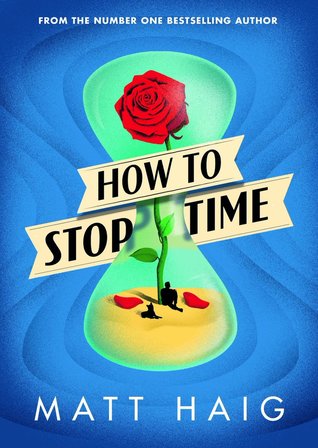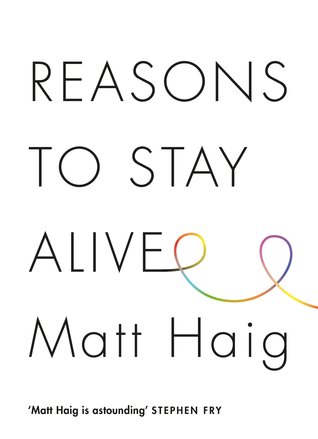#HowToStopTime #MattHaig #Review

Tom Hazard has a dangerous secret.
He may look like an ordinary 41-year-old, but owing to a rare condition, he's been alive for centuries. From Elizabethan England to Jazz Age Paris, from New York to the South Seas, Tom has seen a lot, and now craves an ordinary life. Always changing his identity to stay alive, Tom has the perfect cover - working as a history teacher at a London comprehensive. Here he can teach the kids about wars and witch hunts as if he'd never witnessed them first-hand. He can try and tame the past that is fast catching up with him.
The only thing Tom mustn't do is fall in love.
This is a really interesting novel. It is quite a short book and it's a very smooth read that mimics the unhurried feeling of someone whose life will last four times longer than everyone else's. There is a clear plot and there are characters who need to 'travel' on their own emotional journey even if this spreads itself across a couple of hundred years rather than ten! But I found there was also a lot of meditation on the themes of history, legacy, love and life.
I am very aware of Haig's campaign to raise awareness about mental health and his honesty in talking about his own battle with depression. I thought that this book had many pertinent observations about life, love, human nature and patterns of behaviour that to me, made it a book that was also a bit of a philosophical self help manual as well.
"Don't attach yourself to people, and try to feel as little as you possibly can for those you do meet. Because otherwise you will slowly lost your mind....."
"Anxiety is the dizziness of freedom."
"Ordinary life is not a guarantee of happiness."
By creating a lead character - Tom - that although not immortal, will live to the age of perhaps 500 years, it gives Haig a chance to reflect on ideas such as how we live our life and how we give meaning to our life. I enjoyed these sentences like the ones I have quoted above as they made me pause for a moment and also added a deeper layer to the book. However, this is not a moralistic, preaching, self gratifying book - Haig has a deft hand and a lightness of touch meaning there is always humour or pertinence in his words so the reader is kept moving along with the plot. And the chapters are short, flit from year to year, relationship to relationship meaning that the reader is caught up in the action and Tom's emotional journey.
Although there is only one narrative voice in the this book, the time line does jump around. It's all clearly signposted and it's all very easy to follow. I thought the fact that the time line jumps forward and back - sometimes big jumps, sometimes smaller, was effective. It worked well and let the reader gradually fit the pieces together despite the fact that there was no urgency to try and make sense of things. For example, towards the end of the book there is an extra section - neither a chapter nor not a chapter, relevant but not relevant. The title of this section itself, "an interlude about the piano", indicates that when you will live to be 500 years old there really is no hurry to get to the end of the story. There is time for an interlude.
Haig has a talent for evoking a strong sense of time and place. He uses the odd detail to place the reader in whichever year he is concentrating on but it is easy to picture the place and each moment in time felt easy to visualise and relate to.
I liked the chapters when Tom was teaching history. Maybe it's a little cliched and maybe it's a chance for the author to effuse about the value of history but I enjoyed it.
"How would you make history come alive? ......History is alive. We are history. History is everyone. It is everything."
There are references to real historical figures in the novel and I am not entirely sure how well this worked for me. Whether it was included to add authenticity or for a bit of fun, I thought the main characters and the premise was strong enough with out the addition of 'real history'. For me, the highlights in the writing and the story were the passages about Tom's mother and the sections about witchcraft. These felt authentic, well crafted and again, although the scenes were four hundred years old, they held much resonance for a modern day reader.
I wasn't sure what to expect with this novel. I like Haig's writing, I liked his protagonist, I liked Haig's observations on happiness, love, human nature and the glimpses into the past. If you're looking for something a little different this summer then this would be worth reading.
How to Stop Time is published on 6th July by Cannongate.
Book Club Questions:
The structure of the novel is not linear and jumps around a bit. Why has the author decided to do this? How did the time hopping affect your reading of the novel?
How did you feel towards the protagonist Tom and how convincing did you find his narrative voice?
What do you think the novel says about love?
What did you think about the relationship between Tom and his mother?
There are several references to real historical figures in the novel. Did you think this enhanced or distracted the plot?
What do you think were the main challenges to the author when writing this book?
Did you like the ending?
If you liked this book you may want to read:




For more recommendations and reviews follow me on Twitter @KatherineSunde3 or via my website bibliomaniacuk.co.uk
0 Response to "#HowToStopTime #MattHaig #Review "
Post a Comment